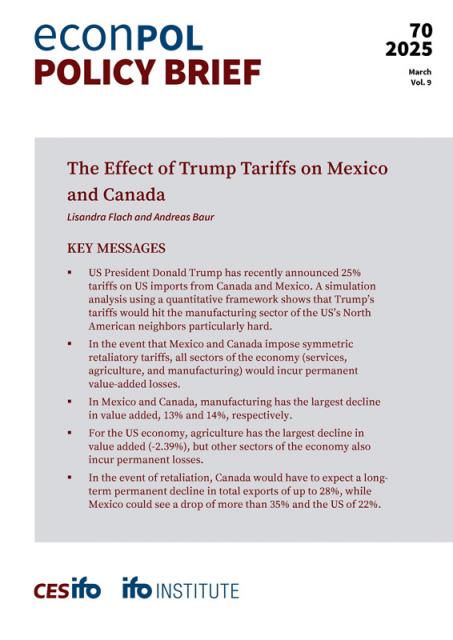If you would like to receive the latest press releases from EconPol Europe, email info@econpol.eu
Press releases
EconPol Europe: The EC’s Digital Tax Proposals Wiped €52 Billion From Capital Markets - Policy Makers Should Proceed With Caution
The introduction of ring-fencing digital taxes leads to disruptive effects on firm value and, potentially, overall economic wealth, according to a new study from EconPol Europe, University of Mannheim and ZEW Mannheim. The study suggests that while a digital tax on revenues may be an effective measure to prevent profit shifting, the economic effects of reduced investment and growth of digital companies may outweigh any potential benefits.
European Investment Bank More Likely to Give Loans to Regions Represented on Board of Directors
European regions which have representatives on the board of directors at the European Investment Bank (EIB), the world’s largest multilateral lending and borrowing institution, are more likely to receive loans than those regions in Europe which aren’t represented, according to new research from EconPol Europe and ZEW Mannheim.
Leading Economists Propose a Stronger EU role in the Provision of Public Goods
Economists Clemens Fuest (EconPol Europe and ifo) and Jean Pisani-Ferry (European University Institute and Breugel) have called for the EU to reorganize the division of labor between the national and European levels and provide more public goods in areas where European provision is cheaper and more effective than provision at the national level.
Chinese Takeover Companies Pay Higher Salaries than Other Investors
Employees in companies with Chinese investors receive higher salaries in the first years following the acquisition than those in companies acquired by buyers from other countries. At the same time, capital productivity is lower in companies with Chinese investors. These were the findings of a team of EconPol Europe researchers led by ifo President Clemens Fuest.
Grandmothers more likely to leave labour market than women without grandchildren
Women of later working age who become grandmothers are more likely to leave the labour market than women without grandchildren, according to new research from EconPol Europe. Male labour supply, however, does not significantly adjust in response to grandparenthood.
